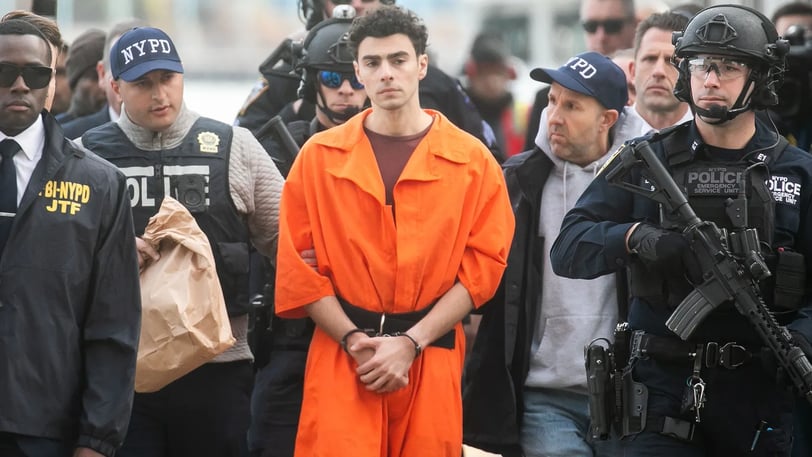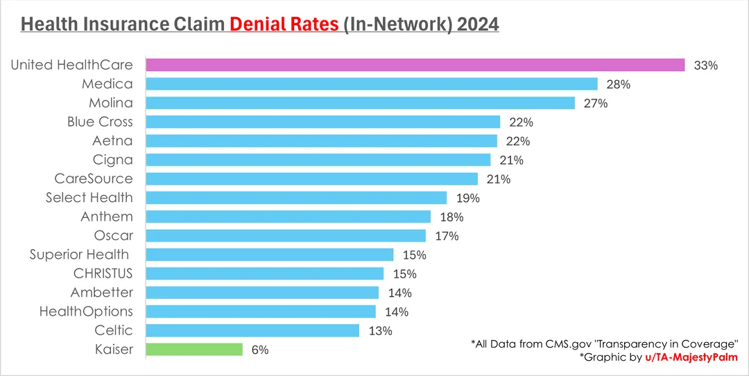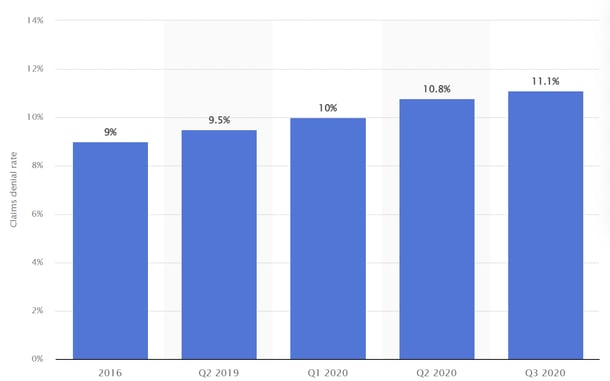CEO Assassination and the Ethics of Popular Protest
This disruptive assassination of a high-ranking executive has brought about a polarized ethical debate and could have effects on the whole insurance industry
HEALTHCAREETHICSOPINION ARTICLENEWS ARTICLE
Evaristo Joaquin Gonzalez Montepeloso
12/5/20243 min read


On December 4, 2024, Brian Thompson, the CEO of UnitedHealthcare, was fatally shot outside the New York Hilton Midtown in Manhattan. Thompson was in the city for an annual investors' meeting for UnitedHealth Group, the parent company of UnitedHealthcare. The assassin was identified as 26-year-old Luigi Mangione, who was arrested on December 9 and charged with multiple offenses, including first-degree murder in furtherance of terrorism.
The incident has sparked significant ethical concerns, particularly regarding the motivations behind the attack. It has been speculated that Mangione may have been driven by his own personal experience with the health insurance industry, as he allegedly suffered from severe chronic back pain and may have developed resentment towards insurance claim denials. This has led to discussions about the ethical responsibilities of health insurance companies in their treatment of customers and the potential consequences of their policies.
Brian Thompson faced significant criticism for practices commonly associated with the health insurance industry, including the denial of claims for necessary medical treatments, which many saw as prioritizing profits over patient care and welfare. His leadership was also denounced for perpetuating systemic inequities, such as limited access to affordable healthcare and high out-of-pocket costs, which disproportionately affected vulnerable populations. Additionally, the company faced backlash for its handling of medical debt, including aggressive collection practices that drew a negative public response. These criticisms highlighted broader frustrations with the American healthcare system, amplifying debates about corporate accountability and the ethical responsibilities of health insurance providers.
Public reaction to Thompson's killing has been polarized, highlighting an ethical debate on whether Mangione's actions were justified on the basis of unethical corporate practices. Some individuals have expressed sympathy for Mangione, viewing his actions as a manifestation of widespread frustration with the healthcare system and justified based on Thompson's decisions as CEO. Conversely, others condemn the violence and emphasize the need for systemic reform through non-violent means. This polarization reflects deep-seated issues within the healthcare industry and varying public perceptions of corporate accountability.
The polarized reactions to this assassination have sparked an ethical debate over the legitimacy of violent actions as a means of expressing public discontent with corporate elites whose policies are perceived to harm the broader population. This discussion raises the question of whether such measures can ever be justified or whether peaceful methods of protest, despite their comparatively limited effectiveness in driving immediate change, should always remain the standard approach. Polls found that a majority of Americans held a negative view toward the killer and the killing, with younger respondents and liberals more likely to support them. It also found a majority of Americans felt that denials for health care coverage and/or profits made by health insurance companies shared some responsibility for the killing alongside the killer. On social media, responses to the killing predominantly featured contempt and ridicule directed at Thompson and UnitedHealth Group, expressions of sympathy and support for Mangione, and widespread criticism of the American healthcare system and health insurance industry, particularly their claim denial practices.
Based on all the information gathered, this article concludes that the assassination of UnitedHealthCare CEOs is indicative of the current political unrest and division in the United States. This issue extends beyond the divide between Democrats and Republicans and profoundly affects various conflicts, such as those between consumers and producers, employers and employees, and other relationships of power present in every segment of society. The actions of some insurance providers in revising their behavior and policies post-event, alongside the reaction from social media that partly justified or supported Mangione’s actions, have revealed deep societal resentment. This has sparked a social response that may lead to an executive realignment of insurance providers, prioritizing client welfare and ensuring fair treatment of patients.
Sources
ABC News. (2024, December 15). Americans unhappy with state of health care and insurance. https://abcnews.go.com/538/americans-unhappy-state-health-care-insurance/story?id=116775693
Associated Press. (2024, December 17). UnitedHealthcare CEO's killing: Luigi Mangione and fallout. https://apnews.com/article/united-healthcare-ceo-luigi-mangione-josh-shapiro-3a8c64a0bc412e0eeb84bca0c99b6e67
Axios. (2024, December 17). UnitedHealthcare CEO killing: Public opinion poll. https://www.axios.com/2024/12/17/united-healthcare-ceo-killing-poll
BBC News. (2024, December 15). Reactions to UnitedHealthcare CEO's assassination. https://www.bbc.com/news/articles/cnv3dnm64vlo
Centers for Medicare & Medicaid Services. (2024). Marketplace public use files. https://www.cms.gov/marketplace/resources/data/public-use-files
Newsweek. (2024, December 15). Luigi Mangione and social media reactions: #FreeLuigi gains traction. https://www.newsweek.com/luigi-mangione-social-media-reaction-support-freeluigi-1998027
Sky News. (2024, December 8). The killing of Brian Thompson: Details and reactions. https://en.wikipedia.org/wiki/Killing_of_Brian_Thompson#cite_note-sky_Dec_8-1
Statista. (2024). Denial rate of healthcare claims in the U.S. https://www.statista.com/statistics/1332799/denial-rate-of-healthcare-claims-in-the-us/
YouGov. (2024, December 17). Presidential pardons, billionaires, and Luigi Mangione: Economist/YouGov poll. https://today.yougov.com/politics/articles/51189-presidential-pardons-billionaires-and-luigi-mangione-december-15-17-2024-economistyougov-poll




Distribution of health insurance claims denial rate in the U.S from 2016 to Q3 2020
